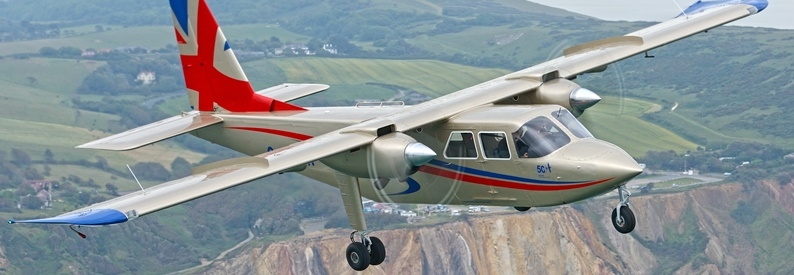UK’s Project Fresson gains momentum

A UK initiative to develop a commercially viable retrofittable green propulsion system for the BN-2 Islander using hydrogen fuel cell technology is gaining momentum.
Lead by Cranfield Aerospace Solutions (CAeS), the Project Fresson consortium’s trials of a hydrogen-powered version of the aircraft are planned for late 2022, as part of the researchers’ work to demonstrate its commercial viability. CAeS chief strategy officer Jenny Kavanagh said the project was “pushing on at pace.” The aim is to develop an emissions-free, hydrogen-fuel-cell-powered flying demonstrator by September 2022.
The consortium consists of Britten-Norman (Bembridge), Bedfordshire-based CAeS, fuel-cell system developer Ricardo UK Ltd and Scottish hydrogen fuel tank developer Innovatus Technologies Ltd, reports The Press and Journal.
The project is backed by the GBP3.9billion pound (USD3.2 billion) UK Aerospace Technology Institute (ATI) grant funding programme, a partnership between the government and the civil aerospace industry.
The consortium earlier this year abandoned a previous drive towards hybrid-electric power in favour of hydrogen fuel cells. This followed rapid advances in technology in the field and the findings of the research team that its first option would prove too heavy and complex and would not achieve the desired cut in carbon emissions. Commented Kavanagh: “Hydrogen fuel cells have zero emissions, no battery charge, and turnaround time is comparable to that of conventional fuels. It is less complicated and operational costs and the fuel costs are significantly lower.”
Kavanagh said Project Fresson has the support of Scottish airline Loganair (LM, Glasgow Int’l). “We have to speak to operators because we want to get this thing into passenger service. We are also speaking to a lot of other operators as well because everybody’s operations are different.”
Air services operated on behalf of Orkney Islands Council by Loganair link Kirkwall with six small island airports to the north, including Stronsay, Sanday, North Ronaldsay, and Eday. Amongst them is the 2.7-km hop between Westray and Papa Westray, which holds the world record as the shortest scheduled passenger flight, lasting between 53 seconds and a minute-and-a-half. Loganair had hoped to claim a global first with CAeS by introducing the hybrid-electric powered Islander on routes there by this year.
Project Fresson is named in honour of Captain Ernest Edmund “Ted” Fresson, who established Highland Airways (8H, Inverness), which introduced the first passenger air services between IInverness, Wick, and Kirkwall in the 1930s.
With other companies working on similar projects, Kavanagh said there was strong competition amongst developers, but regulations for hydrogen fuel cell aircraft still needed to be finalised.
A six-seat hybrid-electric aircraft recently flew from Orkney across the Pentland Firth in what was a first demonstration of the technology in the UK. The trial was part of the Sustainable Aviation Test Environment (Sate) project, led by Highlands and Islands Airports (Hial) and based at Kirkwall Airport. The initiative was created to test low-carbon aviation technologies as well as to investigate the airport infrastructure necessary to support sustainable aviation.
